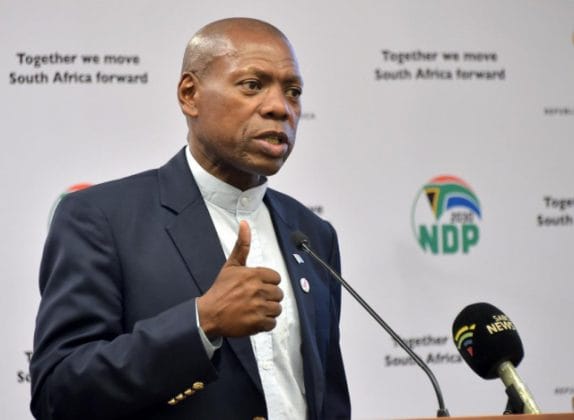As the pandemic continues to control social life across the world, the public’s questions regarding the situation increase. Many things are up in the air, with protests in the hospitality industry, schools closing again and vaccines coming closer to being finalised. These are all issues of public interest.
Health Minister Zweli Mkhize tackled the task of providing some clarity by answering the public’s questions in a live broadcast by Newzroom Africa on Sunday, July 26. These are the key points he made during the broadcast.
A picture of the upcoming months
The future does not look that bright in the eyes of Mkhize, who predicts the infection rate will remain high. “We expect the numbers are still likely to increase … August and September we’ll still have high numbers … which means more people might still be hospitalised,” he said.
“Each province had its own trajectory … However, we do believe that at some point we will be over this problem …We work very hard to break the cycle of infection,” he assured.
While the country is presently facing what is said to be the worst of the virus, Mkhize said the peak is yet to arrive. He also added that “The peak will come in July, August and September”.
Vaccine
In relation to a vaccine, Mkize didn’t have too much to say. However, he clarified that thus far no country has a vaccine that is ready, and that trials are still in progress across the globe.
“Some of the vaccines … they [the pharmaceutical companies involved] say that their processes are well advanced. We have been in touch with the same companies in SA … we are going to work with them closely,” he said.
Movement
As expected, the Health Minister would prefer that there was as little movement across the country as possible. “We are not encouraging a lot of movement. It’s a challenge in the same vicinity because people can move from the same area to the other,” he explained.
Schools
Most importantly, Mkhize spoke about the return of learners to schools. He noted that COVID-19 and its effects will remain an issue for a long time to come. He expects that it will be “with us this year, next year, and maybe the year thereafter”.
In line with this, he said that the number of infections will be much higher when learners return to school in four weeks time. “By the time when we do open, the number of people who are positive will be higher than they are now,” he said, explaining that social distancing and masks are the best way to keep people from being infected.
On sending kids to school, he said, “It’s not because we don’t care about people … from where we sit, we say that, yes, it’s a challenge but it’s not a reckless move.”
“Our ministerial advisory committee said the sooner they get back to school, the better. When the unions came up, they were concerned, then we got the experts to come out as well … A lot of them actually agreed the risk to children is not that high,” he explained of the recently made decisions about closing schools and when to reopen them.
Mkhize noted that most children who are infected with COVID-19 have been infected in their communities, rather than at school. For this reason, the issue of schools will continue to be negotiated.
“The truth of the matter is children can’t be constrained … [But] we can never say we are all completely correct,” he said.
Miscellaneous points
Mkhize also addressed corruption, saying that “it is a cancer we must fight against.”
Additionally, he took on the topic of the EFF’s concern around statistics. “I would like to engage with the EFF to see what concern they’ve got … numbers can be confusing. The numbers we issue every day are well calculated,” he said.
COVID-19 update in SA
On July 26, Mkhize announced that South Africa had recorded a cumulative total of 445 433 confirmed COVID-19 cases, with Gauteng having the highest number of total cases.
“Regrettably we report 114 new COVID-19 related deaths: 7 from Eastern Cape, 29 from Gauteng, 12 from KwaZulu Natal, 30 from Western Cape, 34 from Limpopo and 2 from Northern Cape. This brings the cumulative number of deaths to 6769,” he said.
The number of recoveries currently stands at 265 077 which translates to a recovery rate of 59,5%.
Picture: Facebook / Zweli Mkhize

